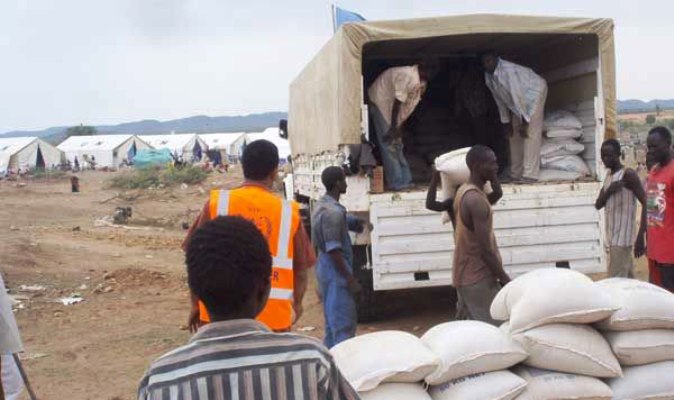Sudan begins to deliver humanitarian aid to rebel-held areas in Two Areas: official

September 24, 2018 (KHARTOUM) Sudanese Presidential Assistant Faisal Hassan Ibrahim Monday announced the government has begun to deliver humanitarian aid to rebel-held areas in the South Kordofan and Blue Nile states.
Speaking at a workshop on the international standard framework for humanitarian assistance in Khartoum, Ibrahim said the government has accepted the US proposal to allow humanitarian access to the Two Areas but the Sudan People’s Liberation Movement/North (SPL-M) rejected it.
He pointed out that the government has started to provide aid from inside Sudan to the people in the rebel-held areas, stressing his government’s keenness to achieve peace and development in the country. Ibrahim added the government seeks to move from humanitarian assistance to sustainable development.
The Sudanese army has been fighting the SPLM-N rebels in the Blue Nile and South Kordofan, also known as the Two Areas since 2011.
The SPLM-N is now divided into two factions: one led by Abdel Aziz al-Hilu and the other led by Malik Agar. The rift emerged last year over the right of self-determination and other organisational issues.
Talks between the Sudanese government and the SPLM-N for a cessation of hostilities and humanitarian access are stalled since August 2016.
The SPLM-N demands to deliver 20% of the humanitarian assistance through a humanitarian corridor from Asosa, an Ethiopian border town.
But the government rejects the idea saying it is a breach of the state sovereignty and a manoeuvre from the rebels to bring arms and ammunition to their locked rebel-held areas in the Two Areas.
The SPLM-N, in November 2016 declined an American proposal to transport humanitarian medical assistance directly to the civilians in the rebel-held areas in the Blue Nile and South Kordofan.
Also, during the last round of talks from 1 to 3 February, the Sudanese government and SPLM-N al-Hilu failed to reach a cessation of hostilities agreement.
The mediation delinked the ceasefire and the humanitarian access and focused at this round only on the cessation of hostilities agreement.
However, differences between the sides emerged when Khartoum proposed that the cessation of hostilities be a step towards a permanent ceasefire and humanitarian access.
(ST)
